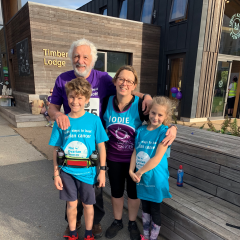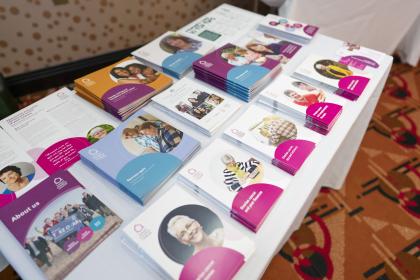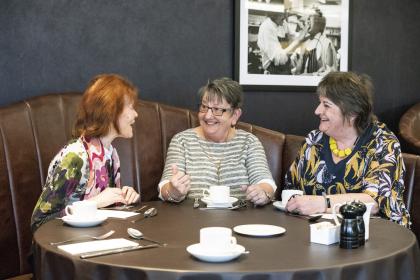Spending time looking after someone or worrying about them can be very physically and emotionally tiring. Your role may change, your relationship may change and you may experience a range of feelings.
It's important not to ignore these feelings. Talking about how you feel and making sure that you take care of your own mental and physical wellbeing is important so that you don't feel overwhelmed.
You're likely to have lots of questions about ovarian cancer and what happens next. You may want to talk openly and honestly about how you feel to help you to process things, and you may want to find out as much as possible about ovarian cancer and your loved one's diagnosis. Remember that not everyone is like this so it's important to talk to the person you're supporting about how to manage this to best suit their wants and needs.
Sources of support
Professionals
Some people find that talking to a professional – a counsellor or a clinical nurse specialist (CNS) – can help them feel more able to prepare for these conversations. Your family member or friend will have access to a CNS and can put you in touch with them to help understand their diagnosis and your anxieties.
Talk to your GP about seeing a trained counsellor if that might be helpful. Local cancer centres and support groups also offer help for family and friends.
Target Ovarian Cancer
Our confidential specialist support line is here not only to support women with a diagnosis, but family and friends too. If you've got any questions about ovarian cancer or just need someone to talk to, call us on 020 7923 5475 between 9am and 5.30pm, Monday to Friday, or fill in our contact form to email us or request a call back.
You may find our guides helpful. They provide expert advice, practical information and emotional support on a range of topics.
We also invite you to join the Ovarian Cancer Community, an open and understanding Facebook community created by Target Ovarian Cancer for everyone affected by ovarian cancer, including anyone with a diagnosis and family and friends.
Relationship support
CORST is the College of Sexual and Relationship Therapists and holds a directory of members to find professional support in your area. You can also use services like Relate, which offer counselling, support and information for all relationships.
Support for carers
You might be a carer for a loved one already or find that you take on some roles and responsibilities in light of your friend or family member's diagnosis. The Carers Trust and Carers UK can give information for carers and can provide practical support.
Practical concerns
After your friend or family member's diagnosis, you may have questions about the practical impacts on your or your loved one's life. Citizens Advice helps people resolve their legal, money and other problems by providing free, independent and confidential advice.
Hereditary ovarian cancer
If a member of your family has been diagnosed with ovarian cancer, there's a chance that their cancer is hereditary. This is where the cancer is caused by a mutation (change) in one or more genes known to increase the risk of ovarian cancer and some other cancers. These mutated genes are passed on from your mother or father.
Read more about hereditary ovarian cancer, including what to consider before getting tested, how to get tested and what this means for your family.
Last reviewed: July 2020
To learn more about our review process, take a look at our information standards.






